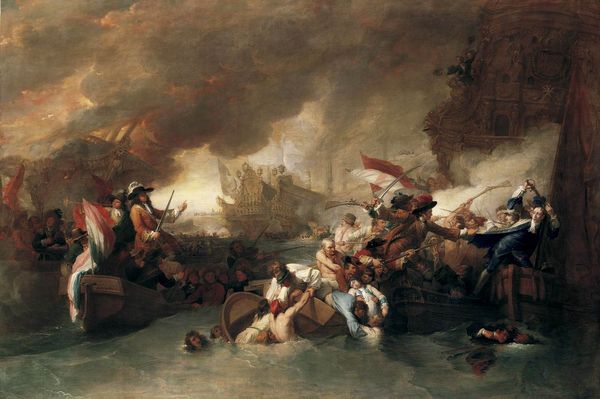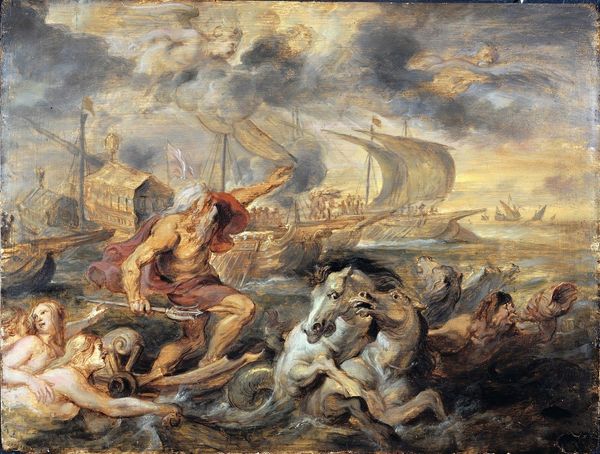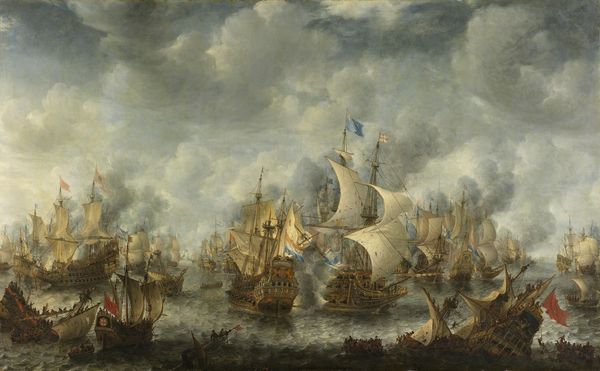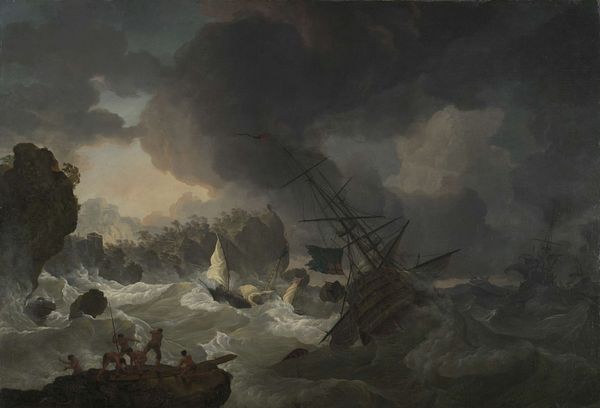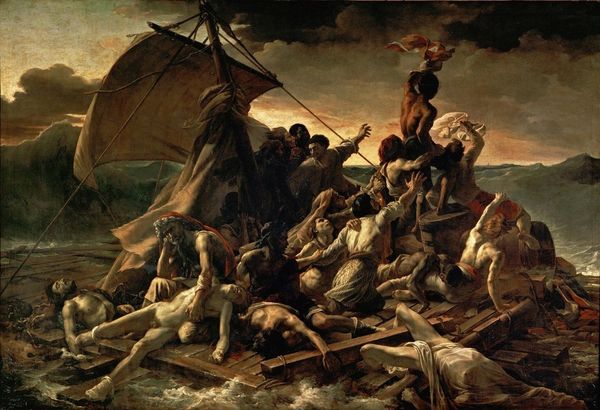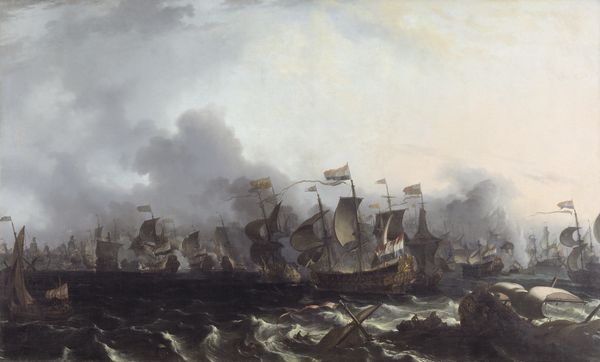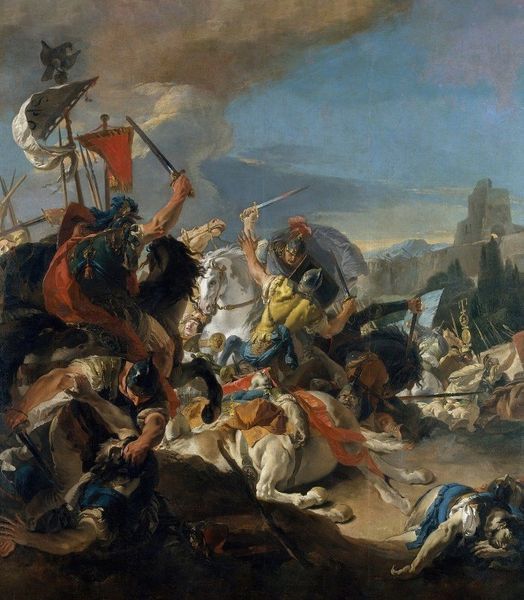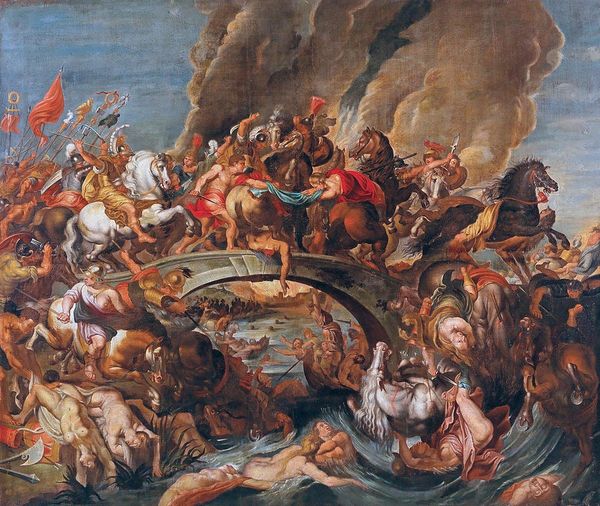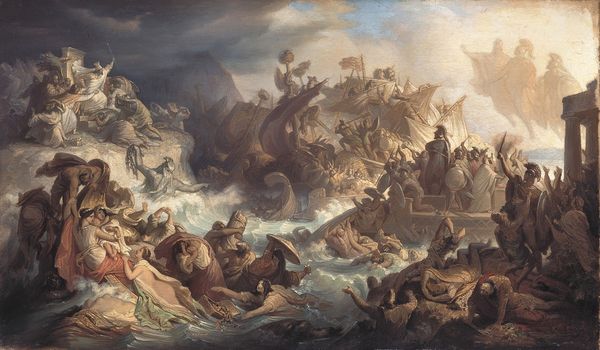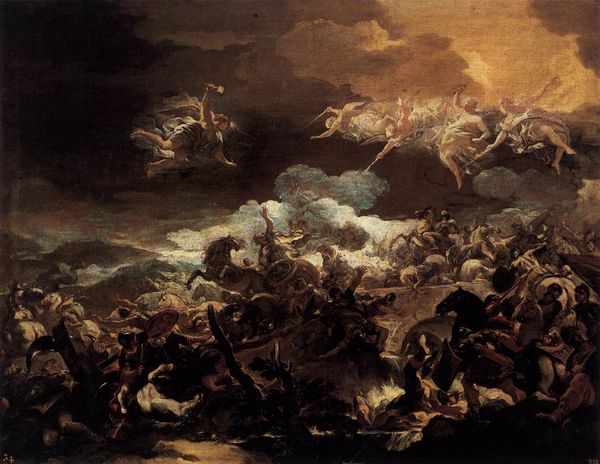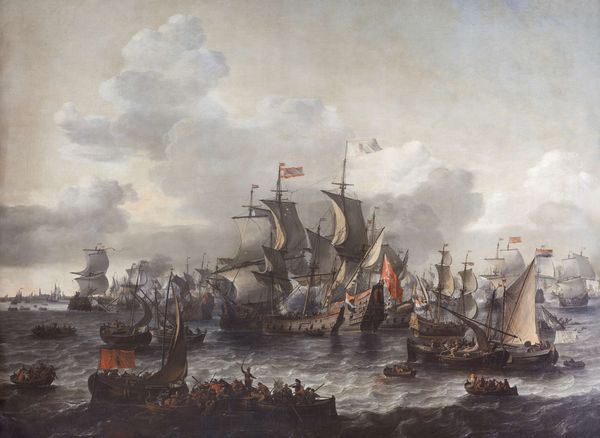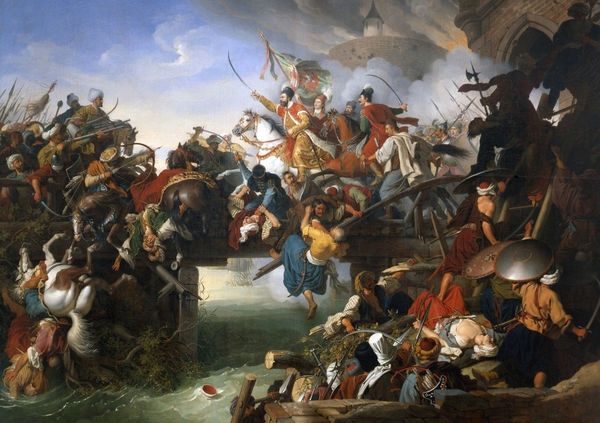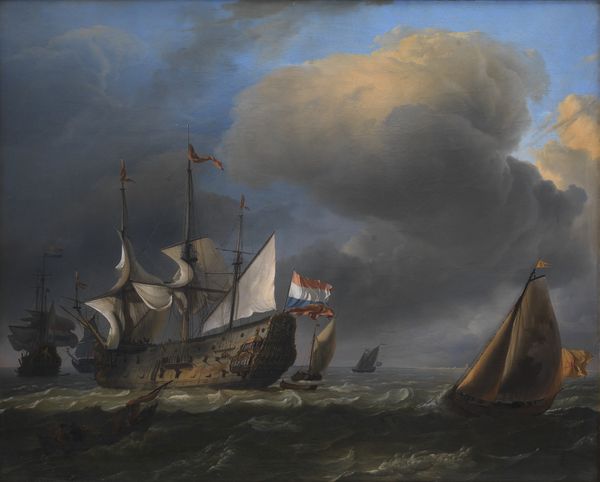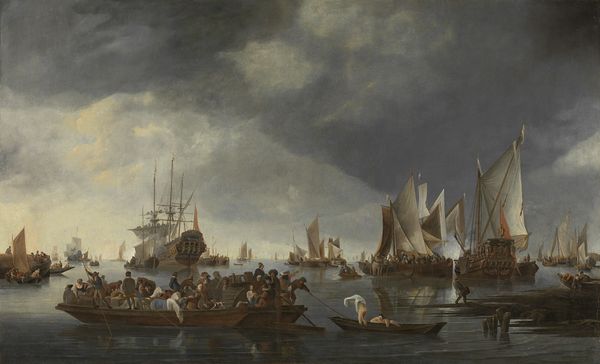
Copyright: Public Domain: Artvee
Editor: This is "The Battle of La Hogue" by Benjamin West, painted around 1778, using oil paints. It's a really dramatic scene, so full of movement and chaos! I'm curious about what drew West to this specific historical moment and how it speaks to the context of its time. What stands out to you in this piece? Curator: Well, beyond the obvious drama, consider West’s choice of subject. The Battle of La Hogue, a significant naval victory for the English and Dutch over the French in 1692, was strategically chosen. England, at the time West painted this, was dealing with revolution in the American colonies and anxieties about its naval power. This history painting isn't simply a representation of the past, but an assertion of British strength and naval dominance in the late 18th century. Editor: So, it's almost propaganda then? Curator: In a sense, yes. But 'propaganda' often carries negative connotations. We could better say that paintings of the era actively participated in shaping national identity and solidifying narratives of power. Who do you see depicted here as heroes, and what details elevate them to this status in the composition? Editor: I see some figures actively fighting while others appear to be drowning or injured; certainly creating the image of English resilience! Are there other details suggesting something beyond a "neutral" history? Curator: The burning French ships in the background are important. West is emphasizing not just a victory, but the utter defeat of their enemies. He paints not just an event, but a specific interpretation of its importance that speaks volumes about British identity during his lifetime. Did history validate this triumphant imagery in later years? Or did subsequent defeats somewhat diminish this perspective? Such questions can open the discourse to new interpretive dimensions. Editor: I never thought about it that way, but looking at it now, I see how much the painting is trying to say about England's role on the world stage. It definitely encourages more questions. Thanks for making this clearer. Curator: Precisely! That is how these artifacts reflect socio-political anxieties of a population, rather than the artist alone. It’s always rewarding to remember that artworks exist as tools for societal discussions!
Comments
No comments
Be the first to comment and join the conversation on the ultimate creative platform.
